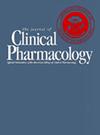Hydroxychloroquine and Azithromycin to Treat Patients With COVID-19: Both Friends and Foes?
IF 2.3
4区 医学
Q3 PHARMACOLOGY & PHARMACY
引用次数: 15
Abstract
The world is facing a frightening pandemic due to coronavirus disease 2019 (COVID-19) caused by the severe acute respiratory syndrome coronavirus 2 (SARS-CoV2) with thousands of severe infections and fatalities. Since no therapy has proven effective, an extraordinary race is taking place to identify an effective and safe treatment able to limit the disease progression and severity. Two nonrandomized open-label trials conducted in France and China1,2 established the effectiveness of hydroxychloroquine alone or combined with azithromycin in decreasing nasopharyngeal viral load and carriage duration in patients with COVID-19, although evidence to support clinical benefits remained low. Thereafter, many studies, still unpublished in peer-reviewed journals for the majority, showed contrasting results and revealed potential safety hazards (Table 1).3-11 To date, multiple trials aiming at investigating chloroquine or hydroxychloroquine at various dose regimens to treat COVID-19 (N = 81) or prevent the disease in high-risk populations (N = 19) are cited on clinicaltrials.gov (accessed April 21, 2020). Interestingly, only 14 trials (17%) will investigate the azithromycin-hydroxychloroquine combination.羟氯喹和阿奇霉素治疗COVID-19患者:是好是坏?
本文章由计算机程序翻译,如有差异,请以英文原文为准。
求助全文
约1分钟内获得全文
求助全文
来源期刊
CiteScore
5.10
自引率
3.40%
发文量
176
审稿时长
2 months
期刊介绍:
The Journal of Clinical Pharmacology (JCP) is a Human Pharmacology journal designed to provide physicians, pharmacists, research scientists, regulatory scientists, drug developers and academic colleagues a forum to present research in all aspects of Clinical Pharmacology. This includes original research in pharmacokinetics, pharmacogenetics/pharmacogenomics, pharmacometrics, physiologic based pharmacokinetic modeling, drug interactions, therapeutic drug monitoring, regulatory sciences (including unique methods of data analysis), special population studies, drug development, pharmacovigilance, womens’ health, pediatric pharmacology, and pharmacodynamics. Additionally, JCP publishes review articles, commentaries and educational manuscripts. The Journal also serves as an instrument to disseminate Public Policy statements from the American College of Clinical Pharmacology.

 求助内容:
求助内容: 应助结果提醒方式:
应助结果提醒方式:


